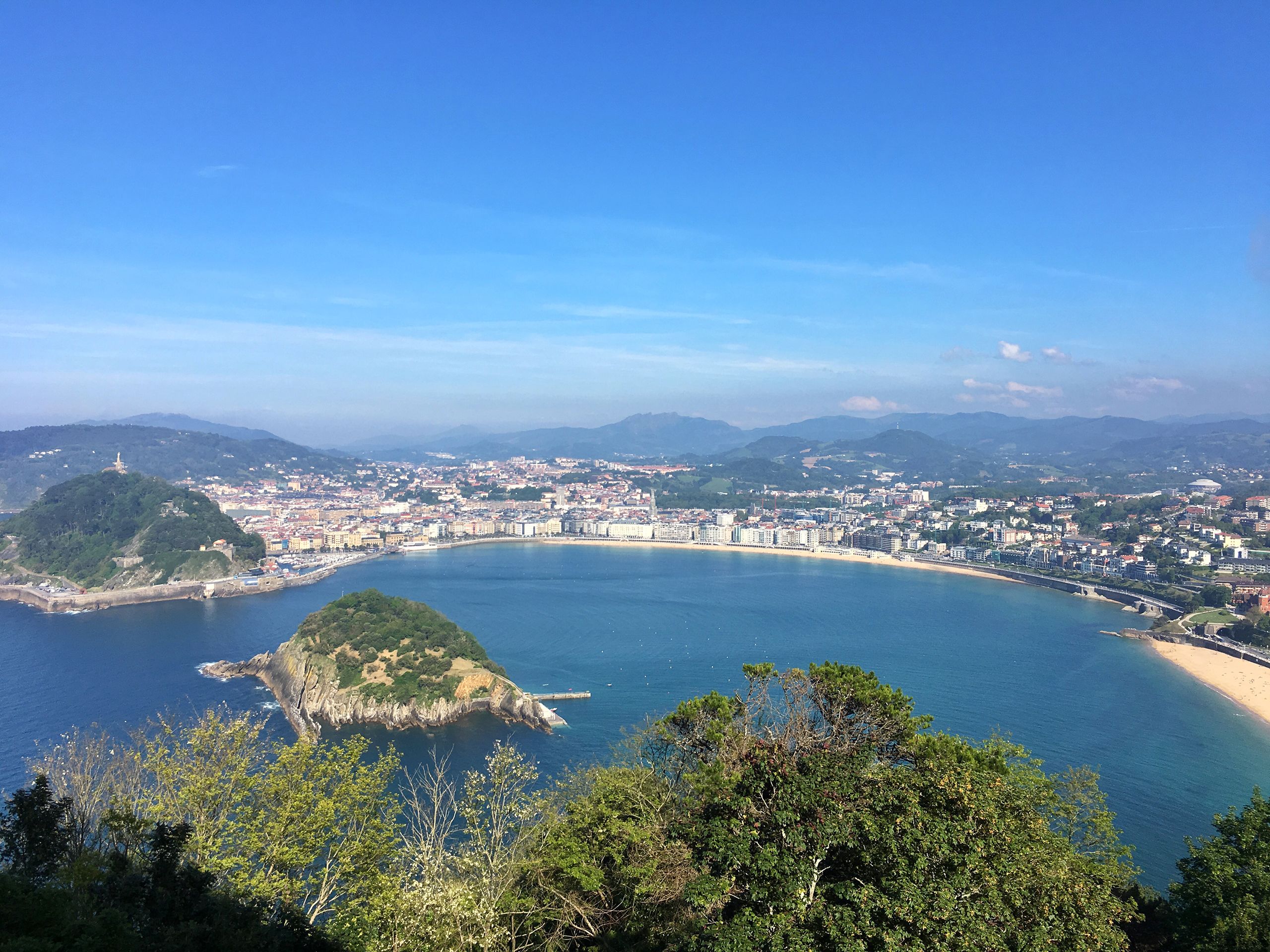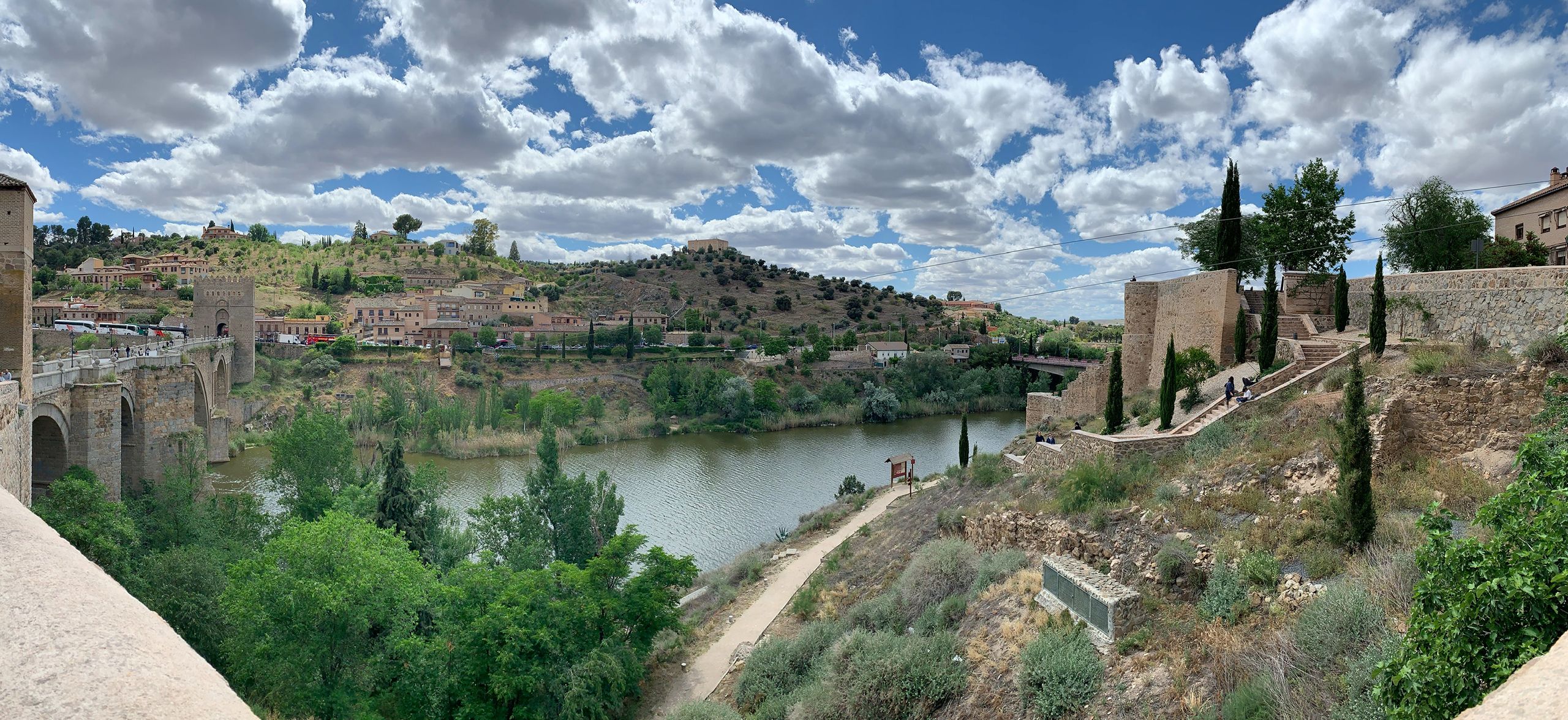Sociology in Spain
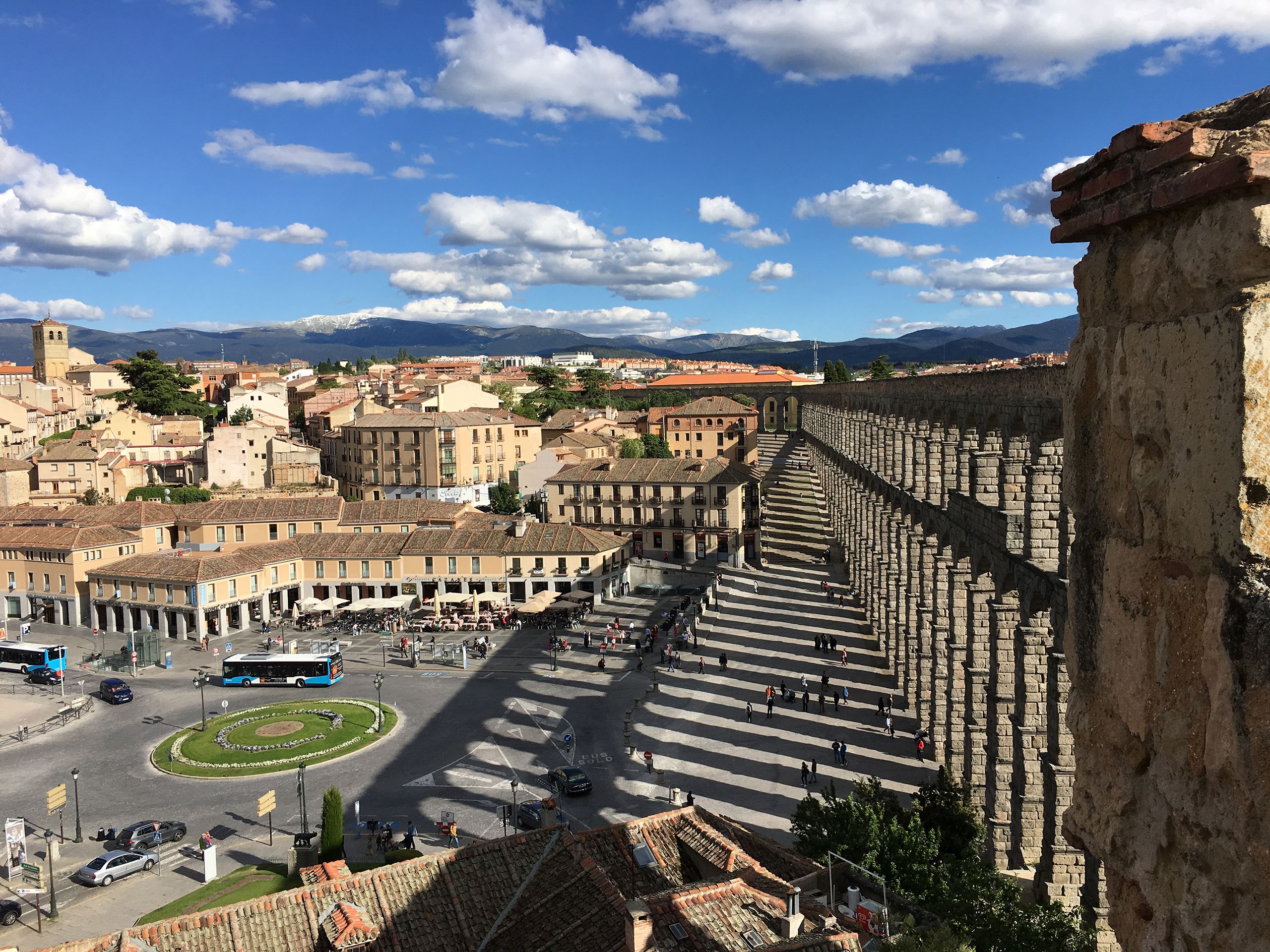
Some college sociology students might expect to stay in their own communities to learn about social behavior and interactions. But a group of Oxford College students recently traveled to Spain to study global political economy.
After spring classes ended, 13 students taking Deric Shannon’s Sociology 255 course traveled to Spain to get a closer look at “Global Political Economy and Sustainability.”
The students traveled for 10 days with Shannon, Oxford associate professor of sociology and Amanda Yu-Nguyen, director of Oxford’s Center for Healthful Living. They visited Spanish cities such as Madrid, Segovia, Toledo, San Sebastian, and Mondragon.
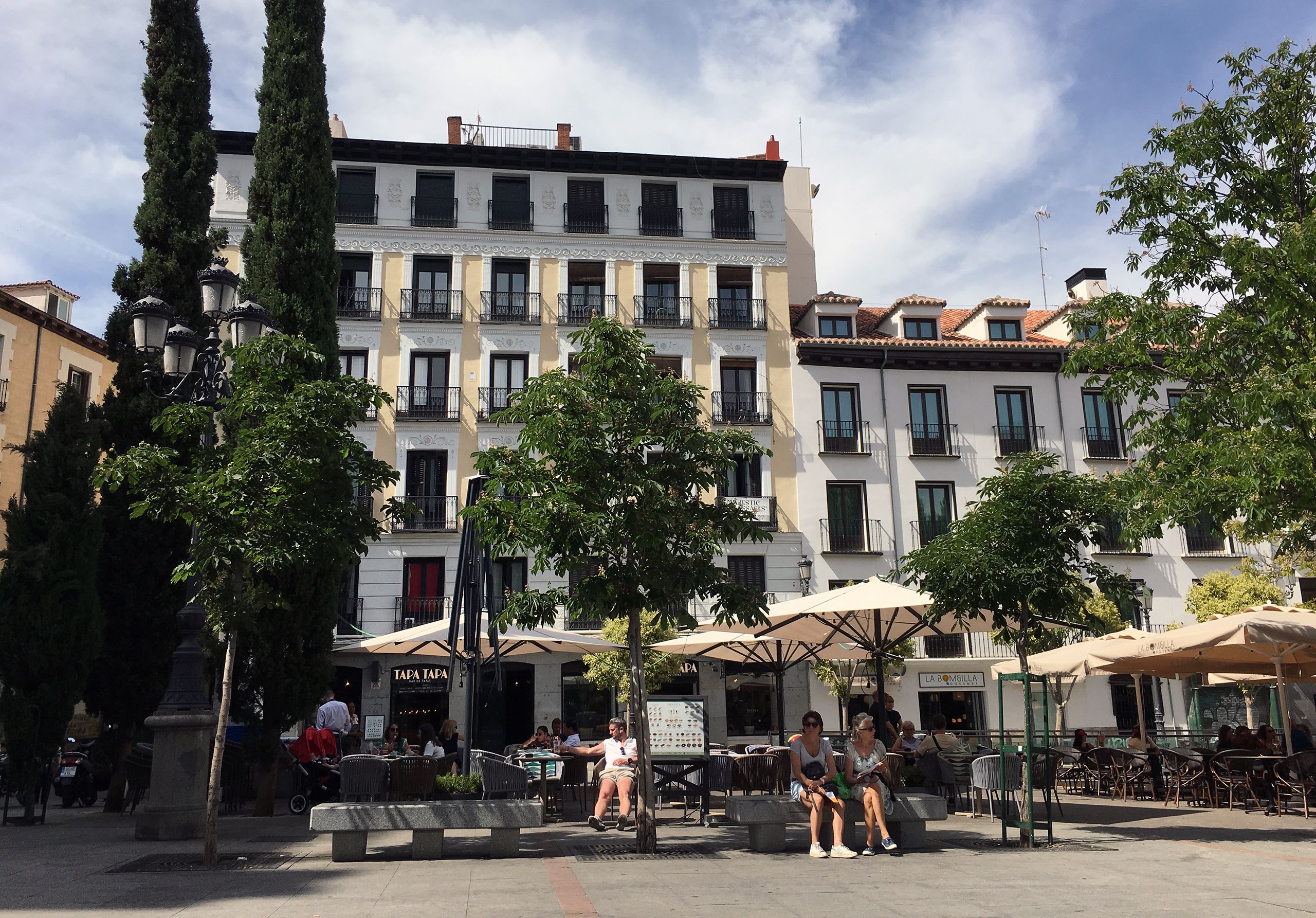
The class explored global political economy and how its patterns and social relations create or suppress possibilities for sustainability. (Mural reads: "We are what we are doing to change who we are."
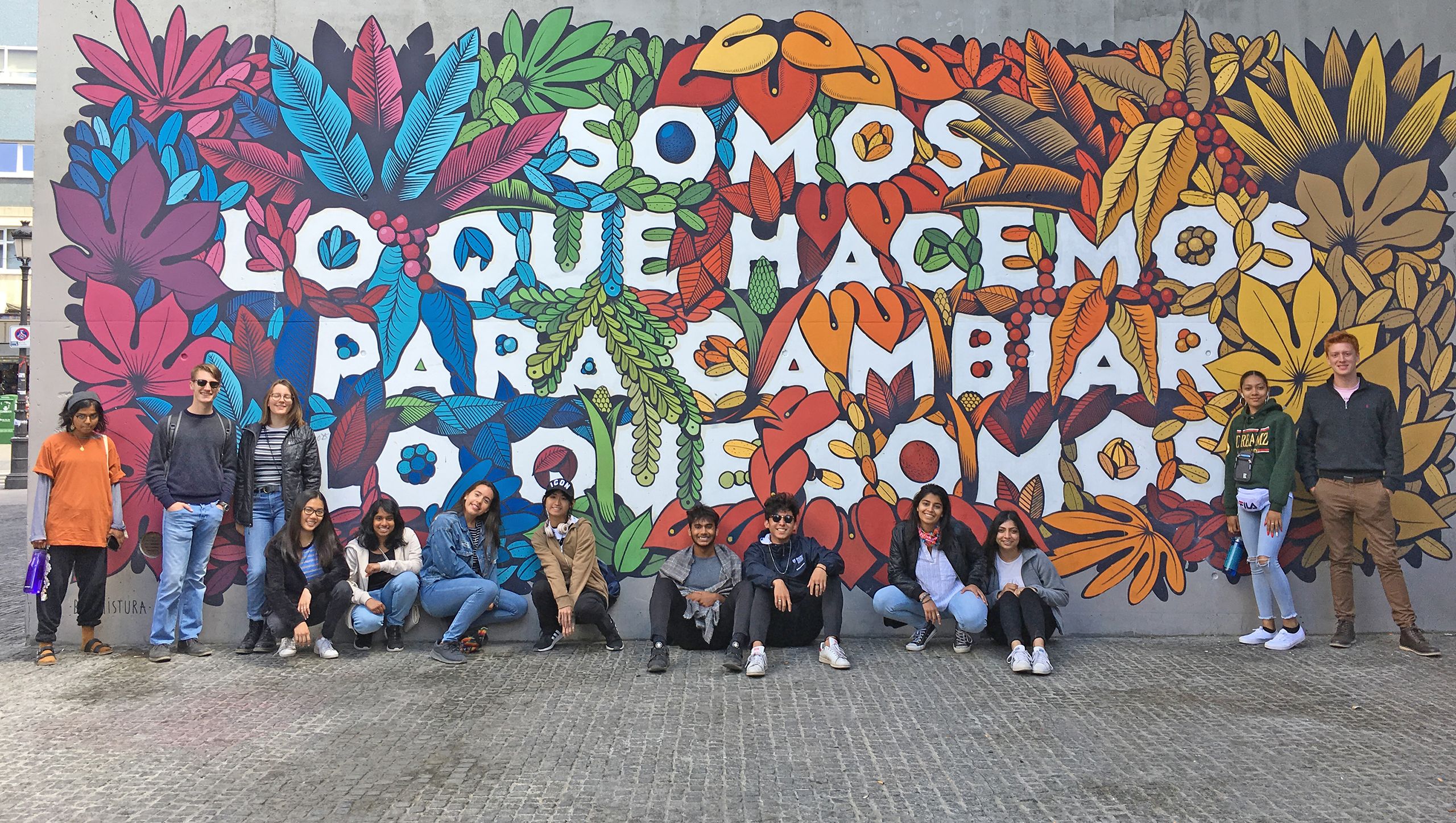
Shannon looked forward to using forms of experiential learning with his students during the trip to Spain. He has studied for many years in southern Europe’s largest country – first for his master’s thesis, and then preparing for this travel course and other classes he’s taught.
“I will continue to treasure the small instances and observations I had,” says Mariana Guerrico-Hatch, a rising junior at Emory College from Tucker, Ga., studying sociology, Spanish, and Portuguese.
As a Spanish speaker, Guerrico-Hatch says she greatly valued all the conversations she had with a variety of people in Spain.
“Listening and learning from people who live day to day through what you might read in a textbook is unparalleled,” she emphasizes. “This trip fomented countless points of reflection and criticism regarding our current conditions in the United States and globally.”
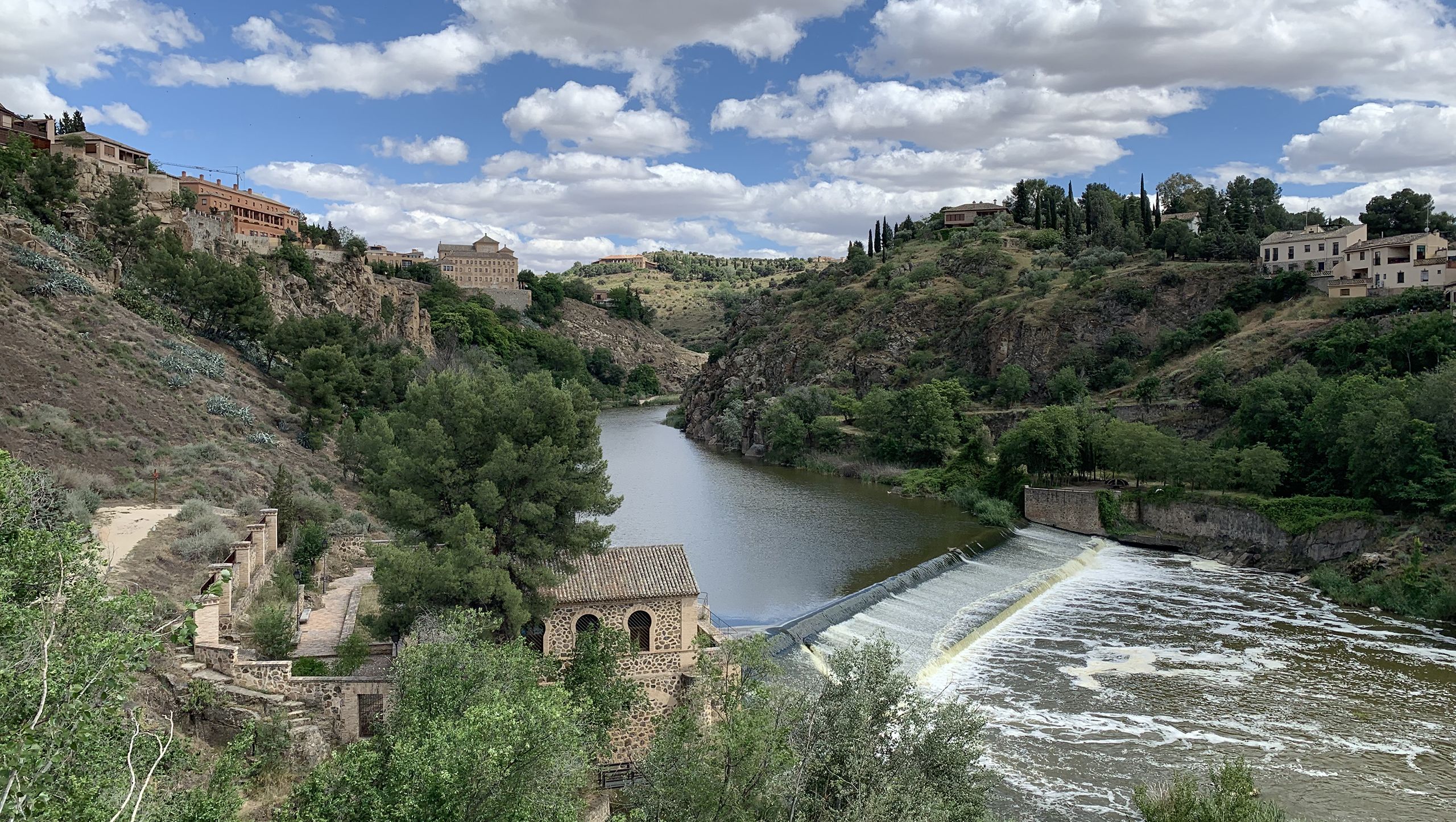
Students engaged with Spanish urban farmers, political organizers, scholars, and civil engineers, among others, to see how their lives relate to academics.
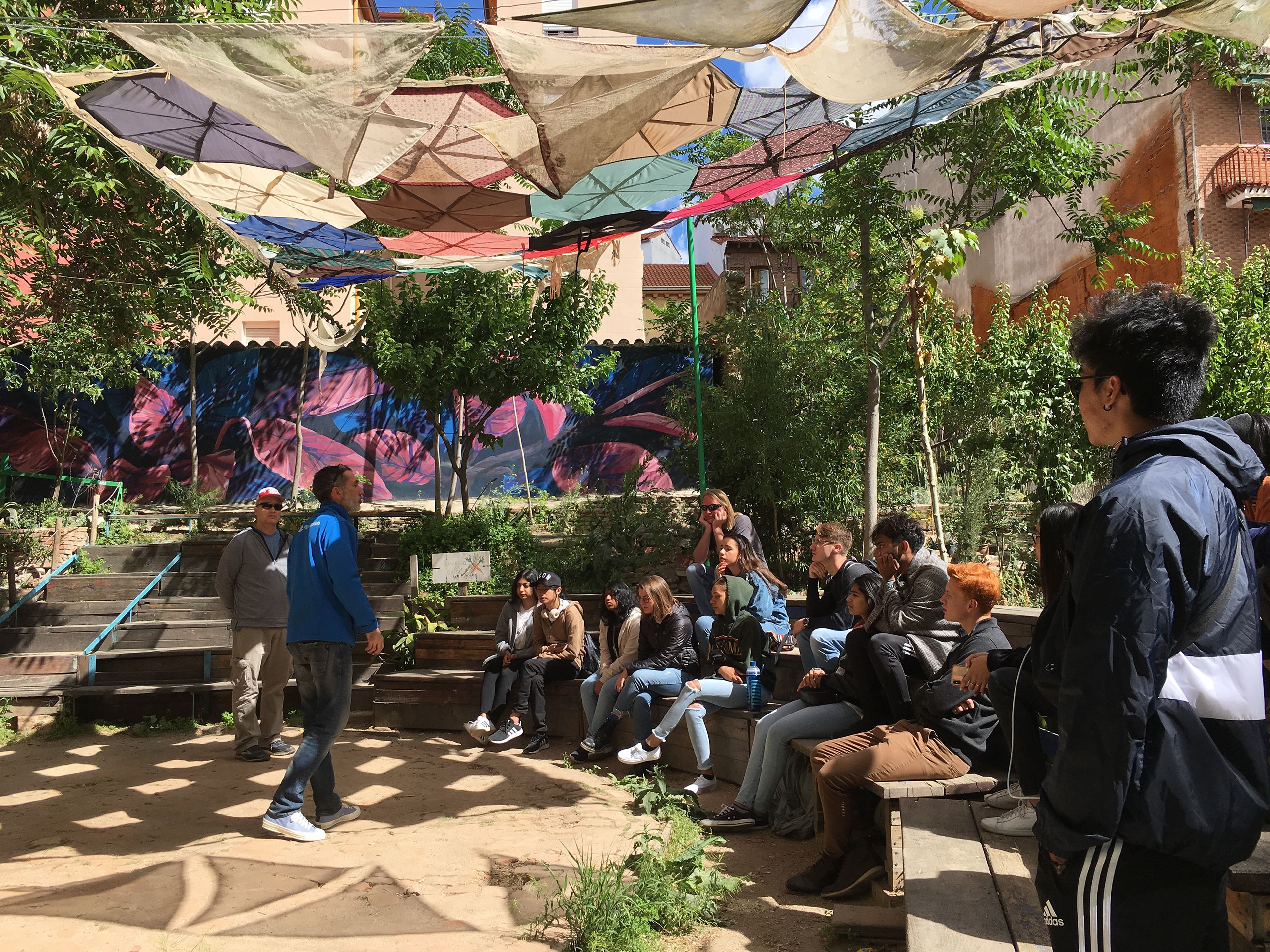
“Traveling with students is always exciting because you get a mix of some students who have traveled before and some who haven’t, so you get to see them experience it and their excitement for the first time,” recalls Yu-Nguyen, a specialist in public health. “I hope students can apply what they learned in the classroom and can compare it to the real world. Traveling forces students to be a little more independent and adventurous on their own.”
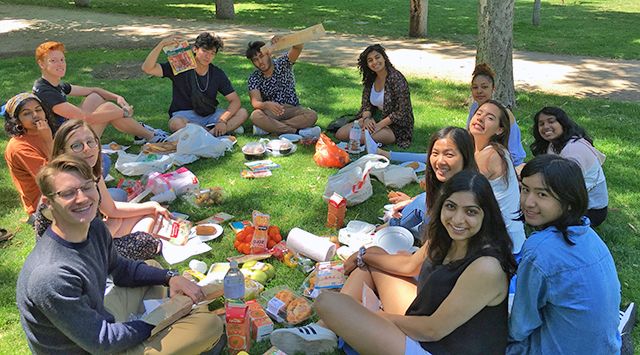
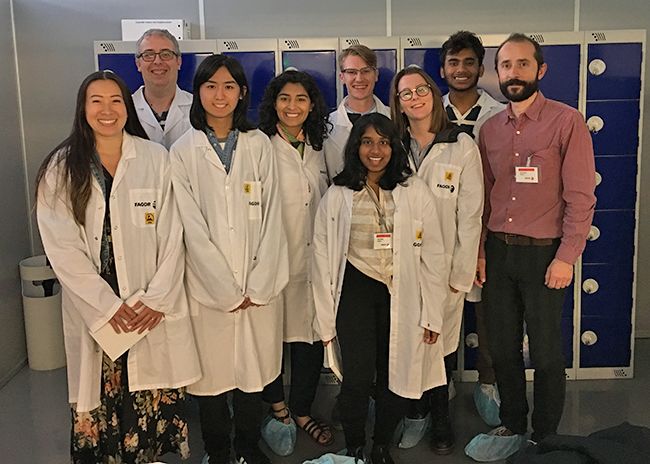
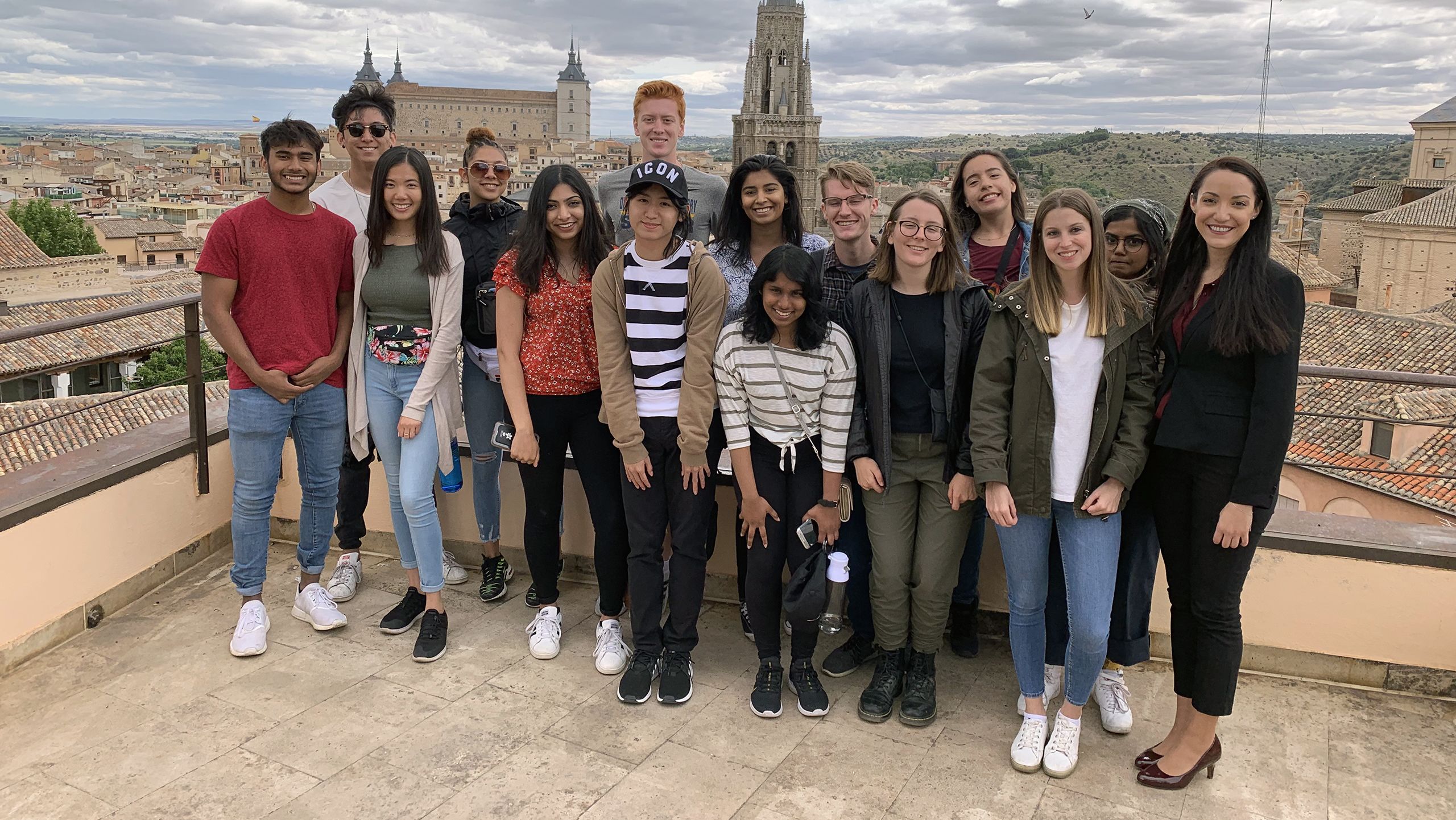
The trip isn’t limited to students majoring in sociology. Participants study various topics at Oxford – including business and science.
In their sociology class, students studied how economies are organized and how they relate to various forms of power. They researched political economic concepts and scholarly work on sustainability to present in class. They also met with local guest lecturers to gain multiple perspectives and compare on their trip in Spain.
"Spain provides an interesting glimpse into some of the prospects and problems with social democracy, particularly how that set of institutional relationships can encourage or discourage our capacity to build sustainable and happy communities."
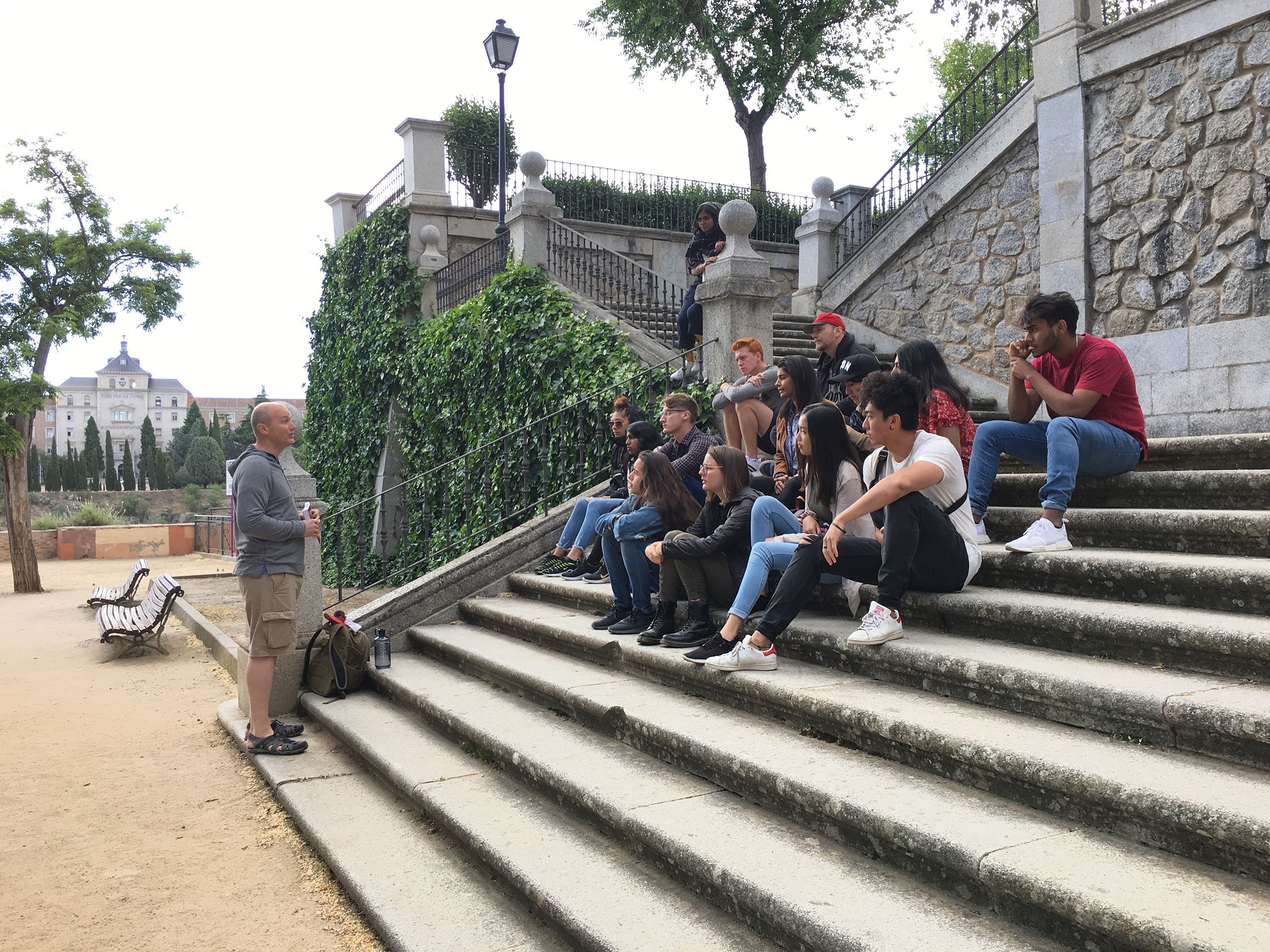
“The class activities focus directly on course material so students can engage with people and ask questions,” Shannon explains. Suggested activities for the students’ free time included tours of historical areas, such as cathedrals, mosques, synagogues, castles or museums.
Taking a seven-hour direct flight from Georgia, the students visited urban gardens and universities and met with various political activists. They took day trips to cities around Madrid, stayed in hostels, and visited a city that operated like a cooperative.
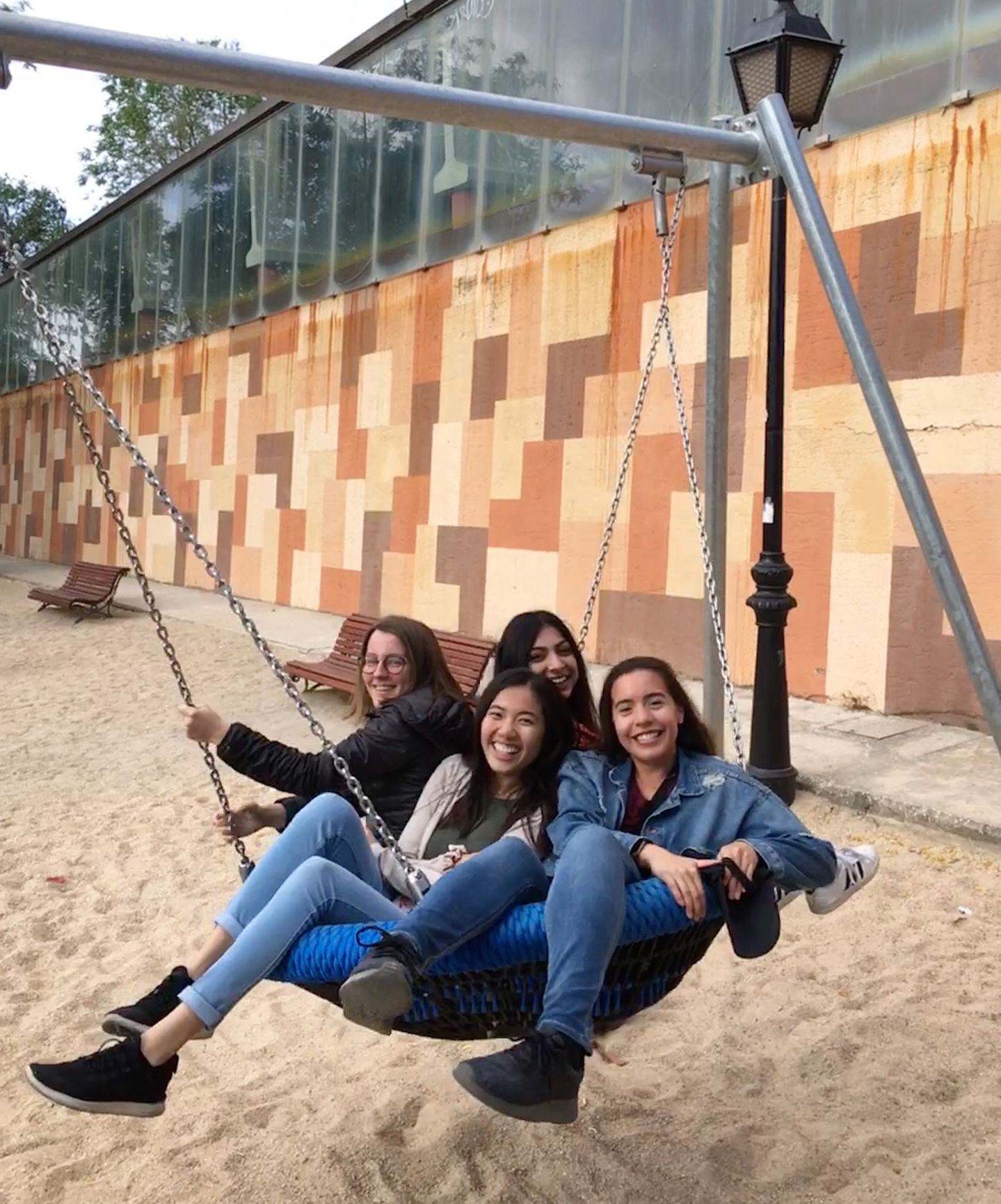
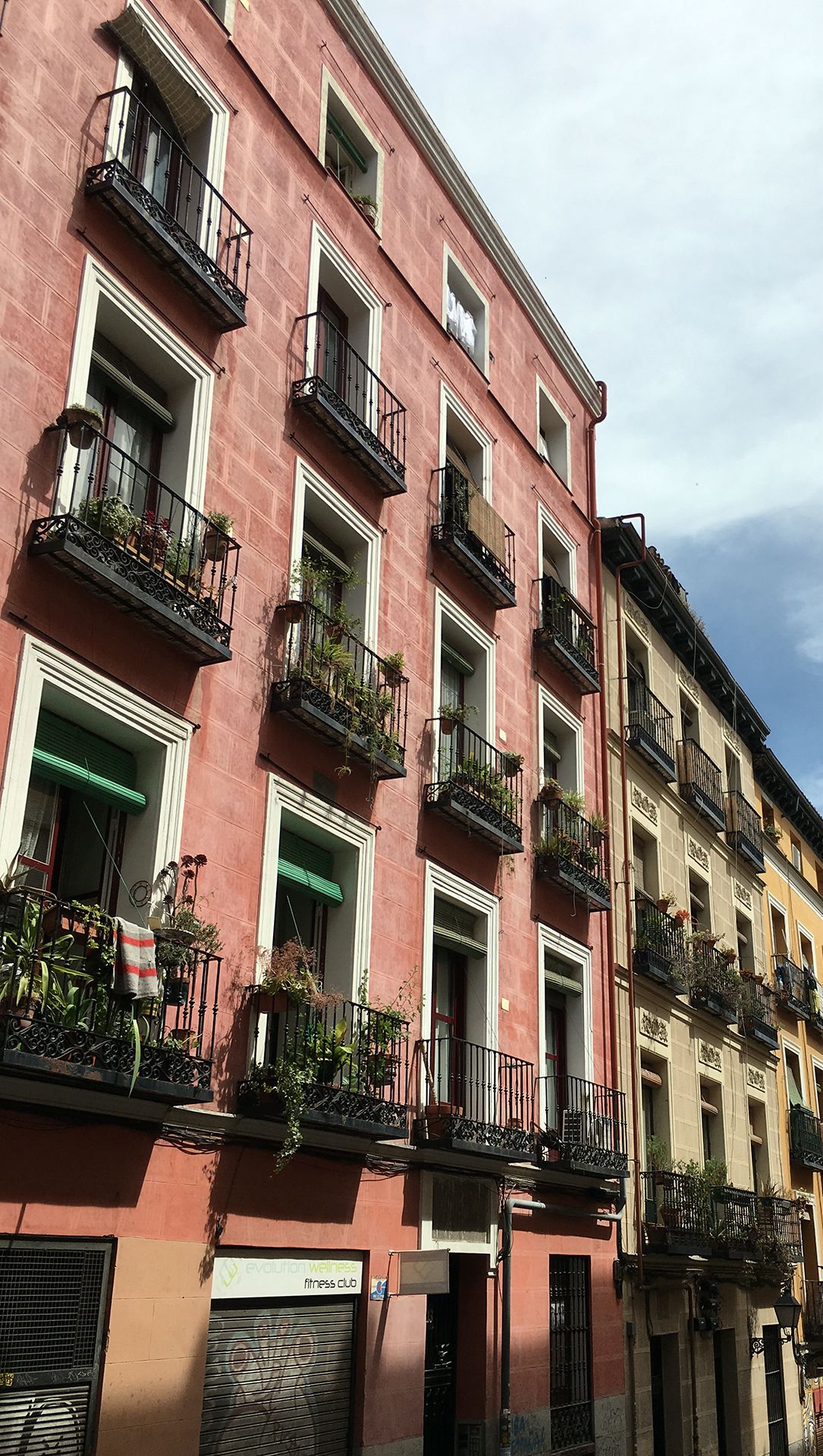

Students met up with their fellow Oxford classmates from an advanced Spanish course who were also traveling to share their experiences.
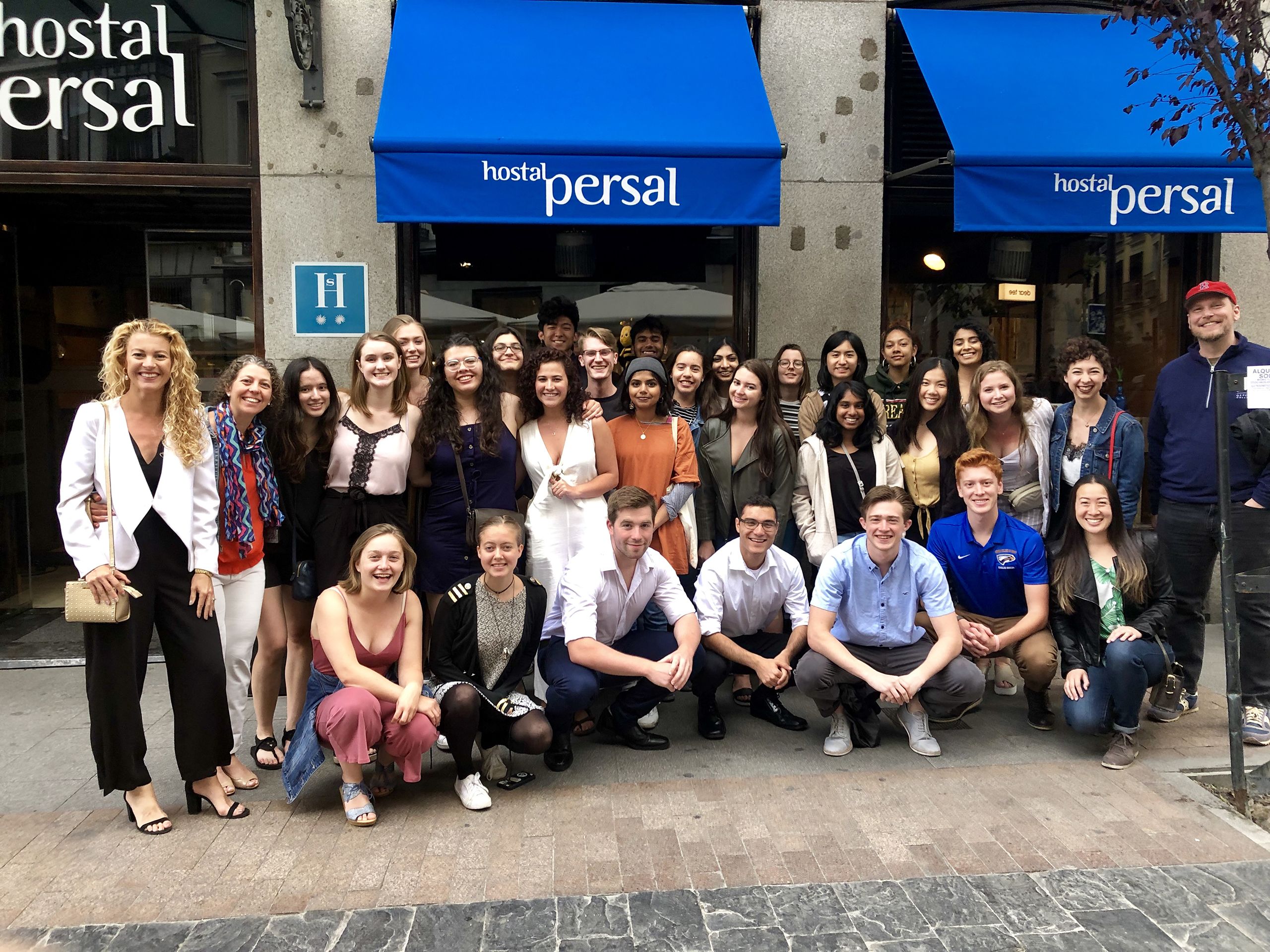
Students had some free time to explore and often ate dinner together in the evening to discuss their day.
“We traveled with a phenomenal group,” Yu-Nguyen says. “The students were curious and respectful of the speakers and asked incredibly intelligent questions.”
Topics covered by guest speakers included the mortgage and housing crisis in Spain, political changes, and sustainable living.
“Along with thinking critically about course concepts, I hope students see social relationships that are different than what they’re used to. It can provide a window into thinking about different possibilities for organizing our institutions and our social world. Unfortunately, this generation faces a lot of large-scale social problems. It will require some imagination and creative thinking to address them.”
— Deric Shannon
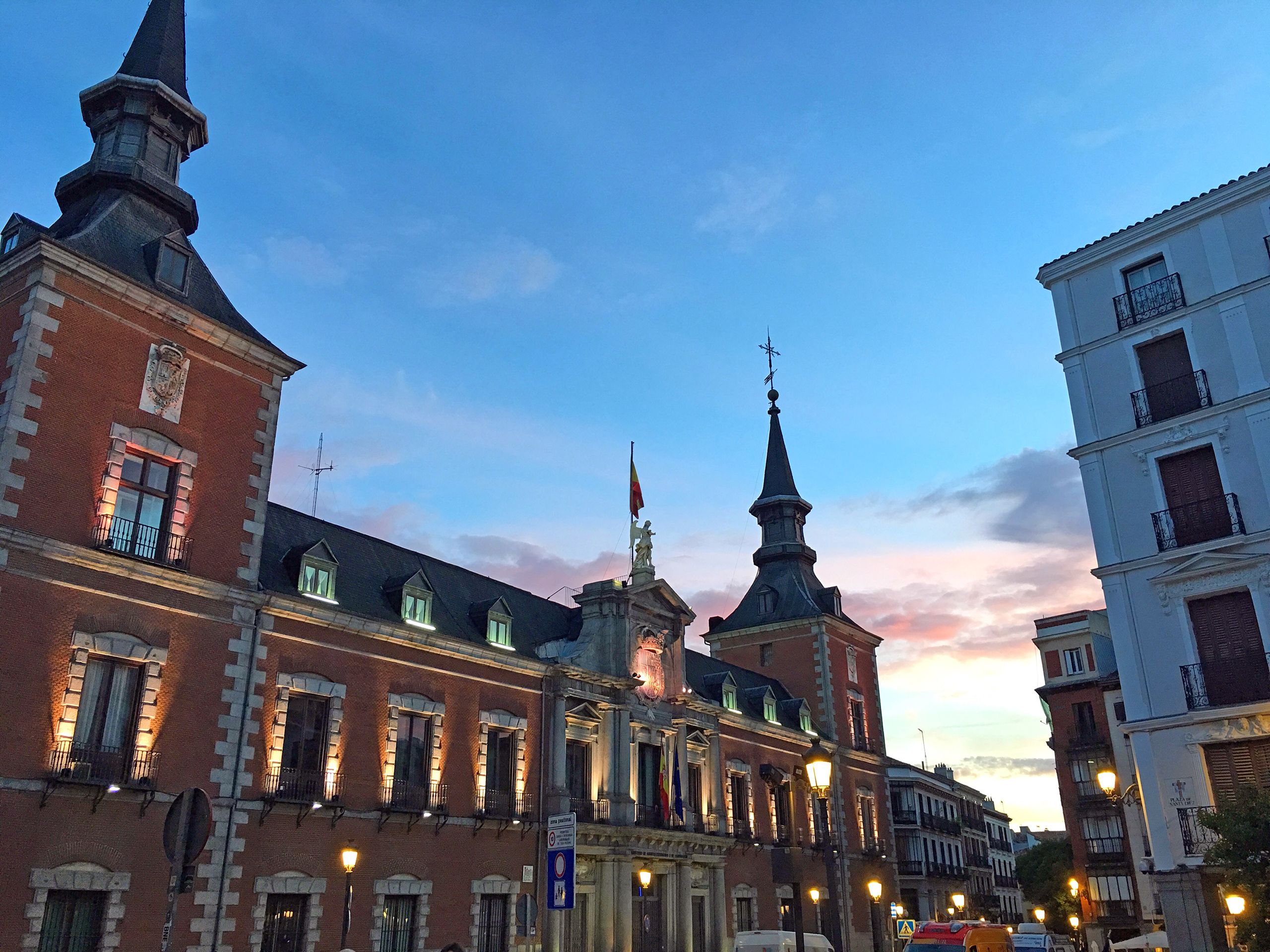
Rising second-year student Anusha Kurapati says the class was self-reflective as students talked about social trends and hierarchies in their daily lives, how they buy into them, and what individual freedom they wanted.
“The trip to Spain connected these dots in that physical, radical change of environment way that travel to another country does,” recalls Kurapati, who is from Dallas, Texas, and studying applied mathematics and statistics and sociology.
"I wanted to go on the trip to experience Spain from the vantage point of a student instead of a tourist. Visiting urban gardens, community centers, and unions in a different country is a once in a lifetime opportunity."
In addition to historical and present-day studies on the trip, the students enjoyed other adventures – including zip lining in Toledo, visiting a palace that inspired Disney’s Cinderella castle, and eating in San Sebastian, known for its many Michelin Star restaurants.
The course is offered as part of Oxford’s Experiential Learning program, which focuses on global learning alongside applied arts, service learning, student research, and professional pathways.
As part of Oxford’s commitment to global learning, students can choose from several short-term, faculty-led study abroad or study away courses a year. Global learning at Oxford engages students with global cultures and offers an international perspective to students’ work in and out of the classroom.
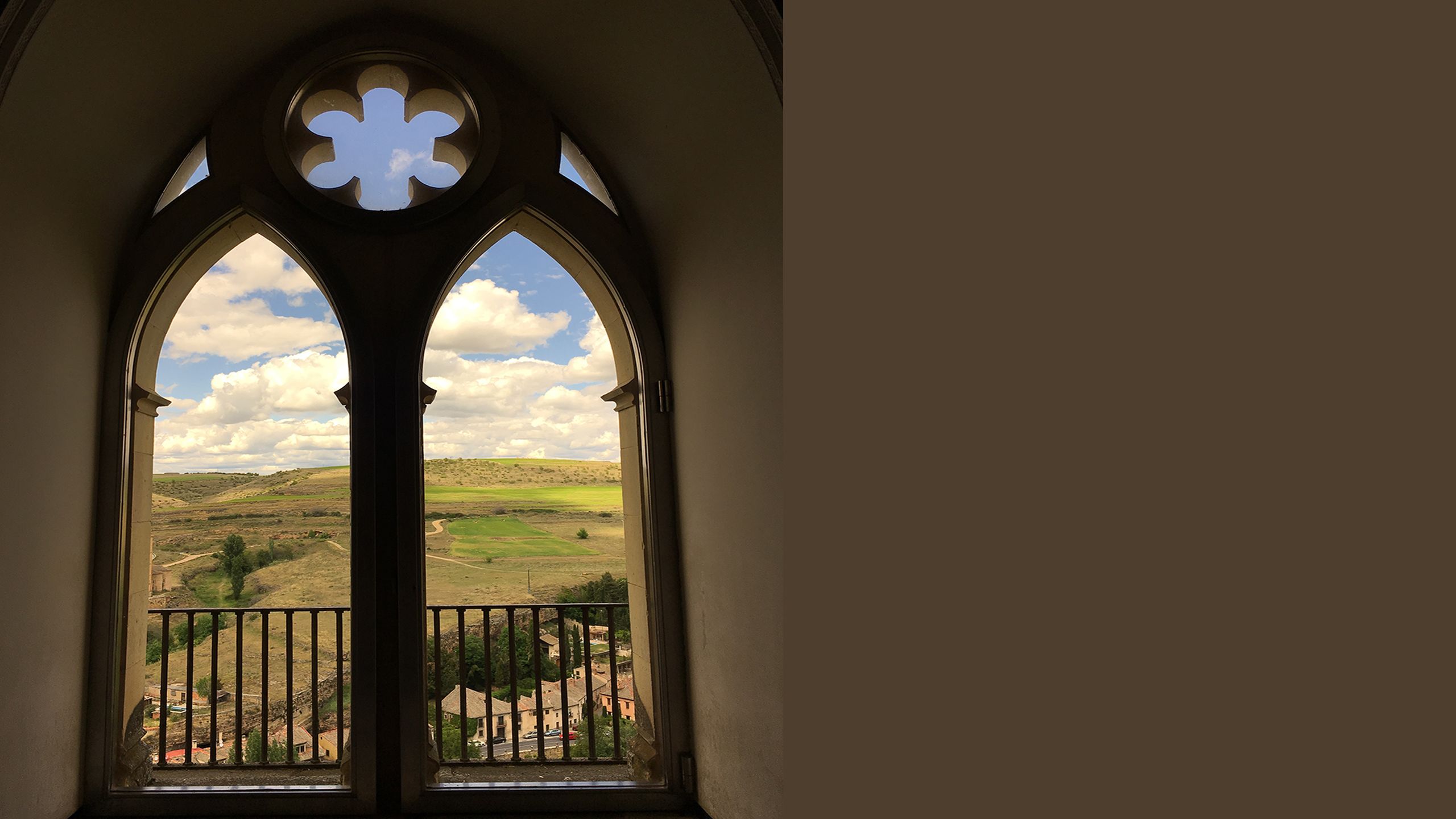
Jill Adams, director of the program, says that travel programs at Oxford have over a 30-year history, anchored by two courses offered by now-retired faculty that were perennial favorites: a domestic desert geology course led by Steve Henderson and Mike McQuaide's social change course to Ecuador.
“These programs and others changed the lives of Oxford students for decades,” Adams says. “The current program carries on their legacy. The program has been expanding with new waves of faculty and student interest since 2016.”
As part of the program, students have traveled to places such as Cuba, Greece, and France. This year, students also traveled to Germany and Italy. Shannon has offered another travel course to Atlanta that investigates social problems.
New programs are in development for Japan, Missouri, and Morocco, among others.
Oxford College of Emory University | July 23, 2019
Written by Michelle Floyd
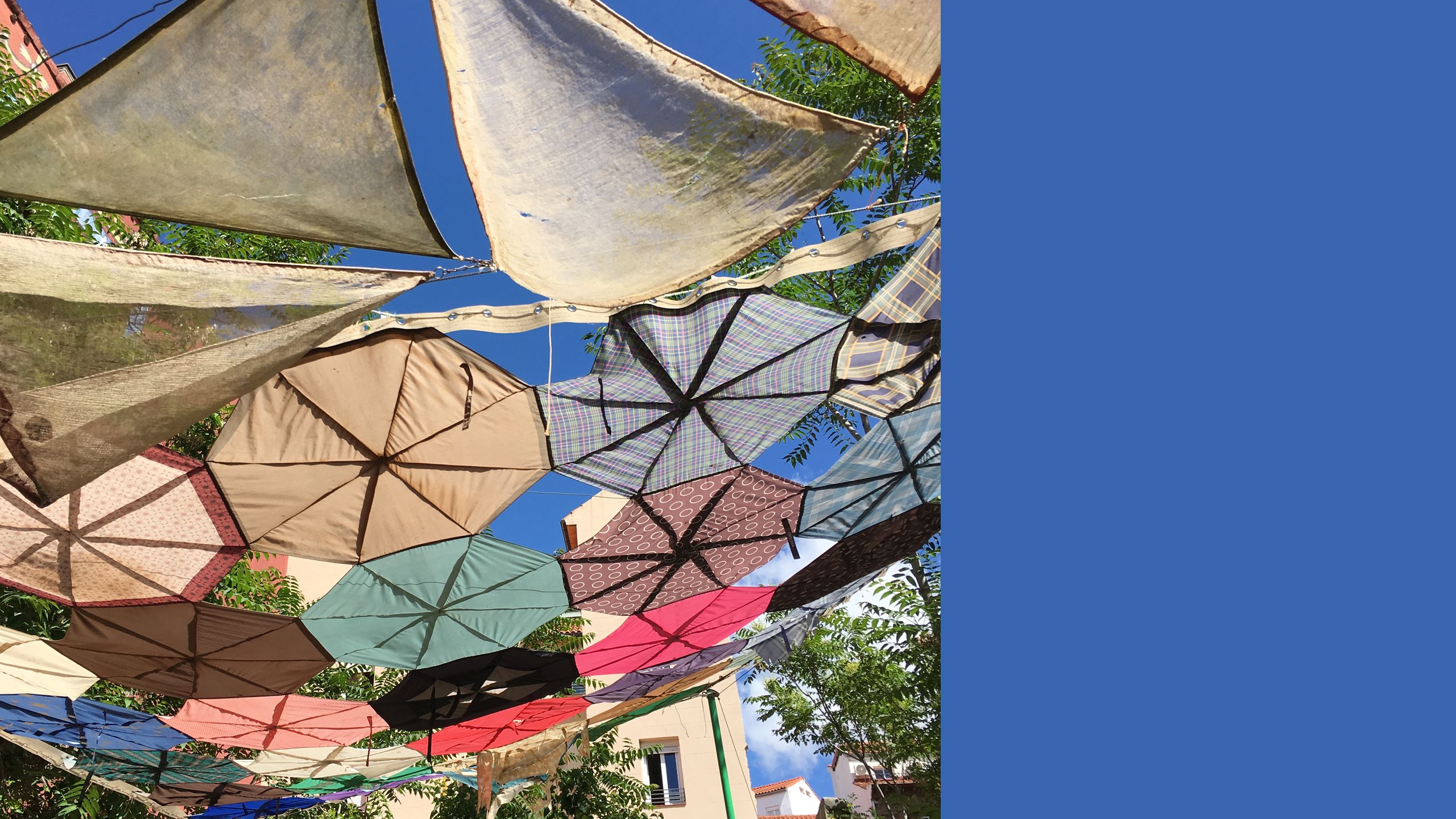
To learn more:
Please visit Oxford College Experiential Learning or contact Jill Adams.
